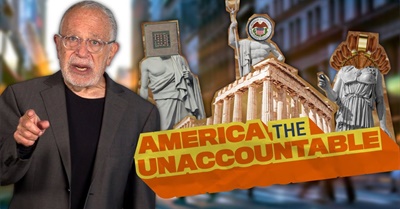
This new era has entailed a new conception of the corporation-one that, as Milton Friedman explained, has no moral obligation except to increase profits for shareholders. Yet capitalism and democracy entered a new phase after the economic and political crises of the 1970s-the phase of “shareholder capitalism,” one that is also marked by deregulation, globalization, and financialization. During the managerial and stakeholder eras, businesses worked with government to serve both societal demands and capitalist needs. After all, capitalism requires outputs from government that include stable governance, effective bureaucracies, rule of law, and public accountability.

Executives of large American corporations spoke about enlightened self-interest, and promoted growth through policies that expanded infrastructure, taxes, education, housing, and cooperation with labor. They embraced politics, pushing parties to create workable regulatory structures and dismantle patronage.Īfter the tumultuous decades of the Great Depression, the New Deal, and the two world wars, when business was sometimes an adversary of democracy and other times an ally, a new era of stakeholder capitalism emerged in the 1950s. An emerging class of commercial merchants and manufacturers grew concerned with problems of ineffective governance. Political parties relied on patronage, not policy, to mobilize voters and staff the federal bureaucracy. Democratic institutions, however, were still governed by the spoils system that Andrew Jackson implemented after his victory in 1828. The managerial capitalist era began in the late nineteenth century, as new ideas about management and organization led family firms to develop into large corporations.

Since then, there have been three distinct periods in the relationship of capitalism and democracy. In the nineteenth century, the corporation came to assume its privileged status in American life.

However, there is an emerging recognition among scholars that reading history “backward”-that is, by projecting contemporary business-state relations on to the past-obscures the productive ways that capitalism and democracy have, until our time, coevolved.
#PLUTOCRACY POLITICAL REPRESSION IN THE U.S.A SERIES#
We tend to think of the relationship between business and government as adversarial, and to see the history of social progress as a series of democratic triumphs over capitalist greed. While businesses have long been active in politics through lobbying and advocacy, these new initiatives aim to solve the public policy problems that our elected officials cannot or will not.īut in a democracy, the primary social contract is, and should be, the one between citizens and their elected officials, not between consumers and corporations. As faith in representative institutions declines, corporations are stepping up their policy involvement: Levi’s recently announced that it is joining Michael Bloomberg’s gun control initiative Amazon, Berkshire Hathaway, and JP Morgan launched a venture to tackle America’s poorly performing health-care system. Decades of deregulation, combined with an ideological project on the political right to delegitimize state activity and embrace the market, have left a void where governance usually occurs. The past half century has witnessed a quiet upending of the balance of power between the private and public sectors. There is also the deeper question of whether we can even fix our democratic institutions, which seem unable to govern effectively in our era of twenty-first century capitalism. We’re faced right now with (at least) three obvious problems: a President who violates democratic norms, citizens who feel that representative institutions are broken, and hostile and polarized parties. The problems with democracy and capitalism are diffuse and complicated. Longstanding critiques of capitalism are being dusted off and repackaged.

But a few decades have passed, and our institutions now seem brittle. President Reagan campaigning in Columbia, South Carolina, 1980.Īre democracy and capitalism compatible? Or, to put it differently: What made democracy and capitalism compatible for decades, even centuries, and what strains this relationship today? The end of the Cold War seemed to settle longstanding debates about the political and economic institutions best able to achieve freedom and security.


 0 kommentar(er)
0 kommentar(er)
